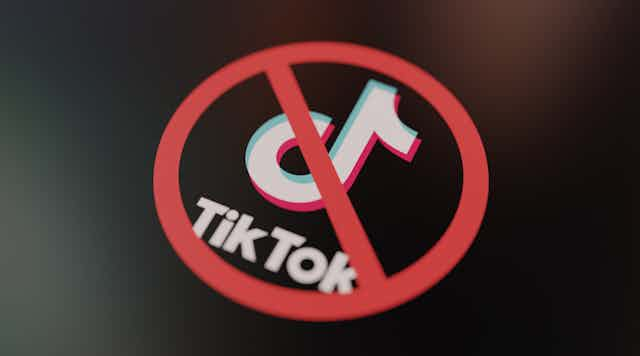TikTok has been under review due to national security concerns by the Canadian federal government since September 2023.
This was reported the day after the U.S. House of Representatives voted to pass a bill potentially banning TikTok. Prime Minister Justin Trudeau says that the Canadian review of TikTok is not related to the current actions undertaken by U.S. lawmakers, but the government is following how the situation unfolds.
A potential ban in the United States and possibly Canada reveals the hypocrisy of those trying to get rid of it: politicians.
Government concerns over TikTok
The legislation proposed by U.S. lawmakers to ban TikTok — unless their Beijing-based parent company ByteDance divests — stems from rising geopolitical tensions. The potential ban represents the lobbying efforts of Silicon Valley companies, who are finding their power in the global platform economy decreasing.
U.S. and Canadian governments are concerned about the control and authority China exerts over ByteDance, and the possibility they can access user data.
However, it is unsurprising that national security concerns are being debated about TikTok in Canada. Trudeau’s February 2023 decision to ban TikTok on government-issued mobile devices followed a similar move undertaken by U.S. President Joe Biden, and numerous U.S. universities.
Donald Trump also expressed similar concerns about TikTok and national security in 2020. He has since changed his position; one of Trump’s campaign supporters is a wealthy Republican billionaire who is also a major investor in TikTok.
Real-world implications
A potential TikTok ban in the U.S. and Canada could have disastrous economic implications on the livelihoods of both Americans and Canadians.
TikTok is a lucrative platform for numerous small business owners and entrepreneurial platform workers. For Canadian TikTok influencers, their followers are predominantly composed of American users. Banning TikTok would likely mean the loss of views and interactions in the tens of thousands.
In the U.S., young people are increasingly using TikTok to access news. While TikTok’s growth has been slower in Canada, it’s one of the most popular apps among young users.
Read more: As pandemic measures are lifted, social media use has declined with the exception of TikTok
It’s in accessing and circulating information where the hypocritical implications of a TikTok ban come to the forefront of this debate.
U.S. politicians and TikTok
President Biden first banned TikTok on government devices in December 2022. The move was due to the continuing debate about China’s influence over ByteDance.
However, TikTok was instrumental in the Biden adminstration’s communications strategy. In 2021, the White House partnered with social media influencers, including TikTok creators, to encourage U.S. citizens to get their COVID-19 vaccine.
TikTok played an important role leading up to the November 2022 midterm elections. The Democratic National Committee (DNC) invited TikTok influencers to Washington, D.C. These influencers met with high-ranking members of Biden’s administration, interacted with former president Barack Obama, and toured key D.C. landmarks, like the Capitol and the Oval Office. These activities were all posted on TikTok as part of the DNC campaign.
Despite announcing that he would sign legislation banning TikTok if passed, Biden’s campaign recently activated a TikTok profile as part of their digital strategy for the upcoming presidential election.
Biden is currently not performing well with young voters. His campaign’s decision to reestablish a TikTok presence reflects this re-election concern. It is not a wise re-election strategy to pass a TikTok ban prior to the November presidential election.

Politics and TikTok in Canada
In contrast to the U.S., Trudeau’s ban of TikTok has stifled political campaigning on the platform by other Canadian politicians.
NDP leader Jagmeet Singh consequently deactivated his TikTok profile. With almost 900,000 followers, Singh’s TikTok attempted to communicate with young users in a language and style they understand.
Read more: Canada's decision to ban TikTok from government devices is bad news for the NDP's election strategy
Despite these existing bans, national security reviews and the threat of new proposed bans, politicians across Canada are campaigning on TikTok.
The Ontario NDP began posting on TikTok in January 2024, with many of their videos using cat memes to advocate against Premier Doug Ford’s policies. This move is part of the Ontario NDP’s permanent campaign digital strategy gearing up for the 2026 provincial election.
Throughout his political career, Trudeau has cultivated his political image by using social media platforms like Instagram. It’s noteworthy that neither himself, nor the Liberal or Conservative parties have ever had a TikTok presence.
That’s because TikTok has been strategically used by those parties that don’t have the same financial resources. Political parties like the NDP see TikTok as a long term strategy to reach potential young voters.
If the Canadian government follows with similar legislation, these political parties will lose out on a platform where they can reach young voters.
Concerns about privacy and security exist with all social media platforms, not just TikTok. Proposed U.S. legislation banning TikTok and Canadian national security reviews showcase the insincerity of politicians and the contradictory nature of politics. Their actions reveal what they don’t want to admit: TikTok is a dominant social media platform.

